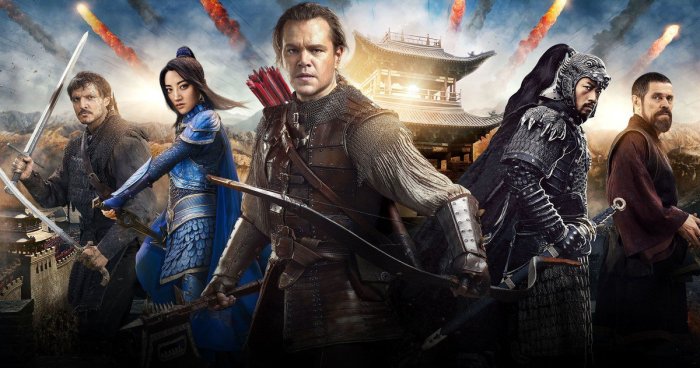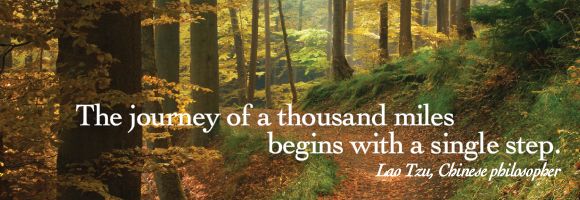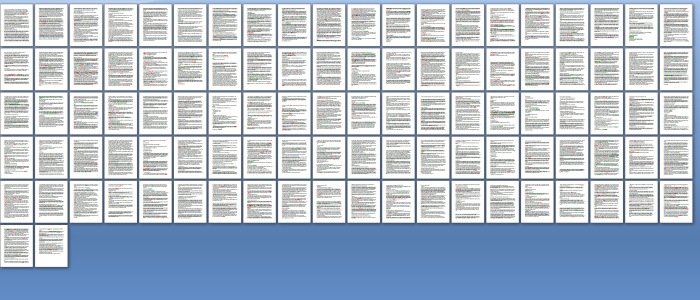 As someone who has a passion – if not outright envy for Asian history and culture, I’m always absorbing any new books/movies/tv shows set there. When a movie like the Great Wall comes along, naturally it blips on my radar, but like many others, at first I thought – hey this looks pretty cool, and then warrior Matt Damon appears. Ugh.
As someone who has a passion – if not outright envy for Asian history and culture, I’m always absorbing any new books/movies/tv shows set there. When a movie like the Great Wall comes along, naturally it blips on my radar, but like many others, at first I thought – hey this looks pretty cool, and then warrior Matt Damon appears. Ugh.
There’s nothing I dislike more than a movie set somewhere in Asia – usually China or Japan, by a western director like Michael Bay, where every Asian stereotype suddenly appears on screen – usually your panda’s in Japan, ninja’s in China type deal. I am a stickler for authenticity – even in movies with a clearly fantastical theme, and very little tolerance for stereotypical shit – or worse, western world crap forced into an asian movie.
The Great Wall is such a movie – but the strange thing here is its directed by Zhang Yimou! A big fat wtf right there. If I squinted at the screen it could have been a standard Michael Bay affair, and to be honest, despite not outright hating the movie, it was no worse than the Transformers movies. It was very much the western popcorn blockbuster and this strikes me as odd coming from the guy who directed such masterpieces as Hero, The House of Flying Daggers and the Curse of the Golden Flower.
Zhang’s movies are often stunningly beautiful, particularly in regards to the way he uses colour. Now the Great Wall was at times very easy on the eye, but that was not enough to carry it. On practically every level it was a crap movie and I wouldn’t recommend it to anyone unless you’re watching it drunk, love Michael Bay’s backlog or just plain enjoy bad movies.
Now in fairness, I had no interest in watching Great Wall as I expected it to be something along these lines. Having recently returned from Beijing – specifically visiting the Great Wall a second time (the first time 9 years ago), I was actually in the mood for something that perhaps showed the wall in all its former glory. As I climbed to the wall and walked along it, I often wondered how magnificent it would have looked when covered in ancient Chinese soldiers, standing vigilant against the Mongol hordes somewhere in the north. That and I loved Zhang Yimou’s movies. So I thought I would give it a crack regardless.
First and foremost, the real showstopper was Matt Damon being the hero. I had read that his presence on the wall was completely justified and I suppose when you think about it – it’s not a lot different from Marco Polo being in the court of Kublai Khan – European traders did go to China. But it was absolutely unnecessary. It easily could have been a Chinese hero – and hell, it should have been, it would have removed the completely pissweak English elements that ran through it.
But worse, Matt arrived with Pedro Pascal of Game of Thrones fame. Now I really like Pascal – he was pretty good in Game of Thrones, but is bloody awesome in Narcos. But here? It’s almost laughable just how bad this character is implemented – the whole subplot involving him and even moreso, Willam Dafoe – a trader whose been kept prisoner in the wall to protect its secrets for 25 years, is beyond bad. There’s just absolutely no reason for this plot, and when Pascal and Dafoe make a great escape and one is promptly killed, the other promptly recaptured, only to be released again later on is just pointless.
Only adding salt to this gaping wound is the fact that Matt Damon speaks in some weird monotone voice that is completely what the fuck. I quite like Matt Damon as an actor, but his voice in this just boggles the mind. About the only explanation I can make is he’s trying to sound European – but he sure as hell doesn’t I’ll tell you that much.
From the Chinese side we have the awesome Andy Lau in the role of Strategist Wang and is completely wasted. The main Chinese presence is a female actor named Tian Jing playing the role of Commander Lin Mae. I am not familiar with her at all, but she struck me as those asian actor’s who keep showing up in western blockbusters, picked only because they can speak English. It sure as hell wasn’t for her acting ability at any rate as she had the emotional range of a muffin. The bigger problem here though was that the Commander was basically anything but. Even when elevated to General, this character was only there to empower Matt Damon – and in the last few scenes, I was actually relieved didn’t move in to kiss him, but still watched him with those big eyes from the wall as he rode away. Blargh!
The commander was the head of a group of women warriors whose name escapes me, who dressed all in blue, launch themselves down off the wall at the great horde of low-budget animated green beasts who are the movies core problem. I’m not actually sure if she attacked with her fellows, but the rest of the time she spent it either looking like someone with authority, or looking at Matt Damon with doe eyes – oh in between translating their English into Chinese for the rest of the cast. Had English just been outright dumped from the movie, it would have been an improvement.
The odd thing about this weak Commander is that many fictional Chinese period movies have very strong female characters – Zhang Zimou’s own movies featuring many of these. One of the things I love about the Wu Xia genre as a whole is that sex rarely matters, the women are more often than not as badass if not moreso than the men. To see this kind of ineffective, doe-eyed princess type character in a Chinese movie, there to be saved by a whitie – and Matt Damon no less, it literally doesn’t get any worse. The *only* saving grace is that it’s been done by a Chinese director – but one whose filmography really contradicts this piece of garbage.
The whole plot of the movie consists of two key elements – stopping the innumerable beasts known as the Tao Tie which attack every 60 years if you’re Chinese, or stealing Chinese black powder and escaping back to Europe if you’re roundeye. Given Matt Damon was the hero – and his selfish plight changed from stealing and escaping to helping the Chinese, I’m not actually sure why the black powder was relevant. It showed up at several key moments and was used to kill the queen Tao Tie, but that didn’t have to hinge upon a bunch of carefactor zero white characters being front and centre to literally thousands of Chinese.
In fact, given how much medieval technology the Chinese have installed into the wall, how many soldiers they have, the quality of their equipment, the precision orders delivered by drums and flags etc – cranes, harnessed warriors, massive fireballs, catapults, automatic arrow firing towers – you name it, somehow they cant cope with the enemy – it’s the two whities who do. In fact, it’s not long before mighty Matt Damon, an archer better than Robin Hood, concocts a plan to put one of the beasties to sleep and test whether it can be subdued with a magnet stone – something the Chinese have never seen before – ignoring the fact that in the real world the Chinese had been making magnet based compasses for thousands of years prior (but hey this is fantasy) – and soon after teaching them to harpoon baddies whale-style, it’s none other than Matt Damon himself whose scampering down a chain to the foot of the wall to deal with these enemies himself – joined only by Pedro Pascal. In short – it’s fucking ridiculous.
Now none of this would be surprising if this was a Michael Bay movie set in China – other than hordes of authentic Chinese ninja that’d be pouring down from the walls – but this was a movie directed by Zhang Yimou!! I honestly cant understand it. Does not compute. My only guess here is he’s purposely set out to create a western blockbuster set in Asia, with all its badness intact. If that’s what’s happening here, then he’s over-achieved.
Let’s not beat around the bush here, the characters and plot are utter shit. About the only place the movie does achieve are the visuals, but even this is only 50% of the time. There are elements of the Great Wall that look great – when you’re in close and its full of warriors. In true Zhang Yimou style, the soldiers are divided into three types – archers, the wall dancing spear women, and…the black ones with the shields whose role I can just assume is melee infantry. These three distinct types have their own armour and specifically, colours. When you have the red, black and blue armoured soldier en masse it does appear impressive. There was also a solid Chinese aesthetic through all of this – from the drums used to deliver orders, the various and ingenius military defences installed into the wall, even the way the blue warrior women were launched from the wall via giant crane arms. It was visually impressive.
But then it panned back from the wall and it appeared the work of a student digital artist, or scenes from a video game in the 90’s. Just bad basically. The same problem affected the Tao Tie who just looked low budget and copy and paste jobs across the board. This same low budget appearance seemed to affect the desert, which just didn’t look right – ending up in the Chinese capital which wasn’t Beijing, or Nanjing, or Xi’an – but some fictional capital which appeared to have its own Forbidden City type setup regardless.
The Great Wall was just a bad movie. Not terrible, but it was bad. Yimou if you’re reading this, I’m disappointed. I’m going to watch the House of Flying Daggers to cleanse myself.
![]()

 As someone who has a passion – if not outright envy for Asian history and culture, I’m always absorbing any new books/movies/tv shows set there. When a movie like the Great Wall comes along, naturally it blips on my radar, but like many others, at first I thought – hey this looks pretty cool, and then warrior Matt Damon appears. Ugh.
As someone who has a passion – if not outright envy for Asian history and culture, I’m always absorbing any new books/movies/tv shows set there. When a movie like the Great Wall comes along, naturally it blips on my radar, but like many others, at first I thought – hey this looks pretty cool, and then warrior Matt Damon appears. Ugh. Stephen Chow’s Journey to the West – Conquering the Demons was hands down one of the best takes on the classic Journey to the West story that I’ve ever seen. It was the perfect blend of Stephen Chow originality, infused with wonderful (and often piss funny) character moments that is Chow’s hallmark. I am particularly fond of the way Chow casts characters (often re-occurring through his various movies) who are just everyday folk. Key characters could literally have been plucked from a street food vendor and thrust onto the screen. When I saw that number two was not being directed by Chow and instead Tsui Hark (most notable for his action movies) I was concerned – but less so realizing Stephen Chow was on as producer. But this second movie while reasonable, fell way short of what made the first movie so good.
Stephen Chow’s Journey to the West – Conquering the Demons was hands down one of the best takes on the classic Journey to the West story that I’ve ever seen. It was the perfect blend of Stephen Chow originality, infused with wonderful (and often piss funny) character moments that is Chow’s hallmark. I am particularly fond of the way Chow casts characters (often re-occurring through his various movies) who are just everyday folk. Key characters could literally have been plucked from a street food vendor and thrust onto the screen. When I saw that number two was not being directed by Chow and instead Tsui Hark (most notable for his action movies) I was concerned – but less so realizing Stephen Chow was on as producer. But this second movie while reasonable, fell way short of what made the first movie so good.
